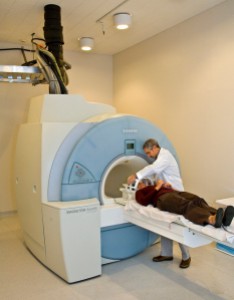
According to the charity Mind 1 in 4 people in the UK are expected to experience some type of mental health problem each year. Importantly, those suffering from severe mental illness (SMI) also tend towards poorer physical health and higher mortally rates than those without a SMI. This link was investigated in a large longitudinal study published last September in the British Medical Journal from the University of Manchester’s Institute of Population Health and Lancaster University’s Division of Health Research, and offers new insight into the well-established link between poor physical and mental health.
Researchers used data from the Clinical Practice Research Datalink (CPRD) – a powerful not-for-profit research service which has been collecting anonymised medical data since 1987 – to explore SMI across the UK and probe how this is linked to social factors and a range of physical conditions. The researchers collected data annually between 2000 and 2012 from patients suffering from SMI* alongside control subjects with no SMI diagnosis. Control subjects were matched for age, sex and general practice (GP) – 5 controls for each SMI sufferer. The power of this research lies in both the number of individuals studied (more than 300,000 SMI sufferers and more than 1,700,000 matched controls) and the timescale over which the data was collected (12 years) – this being the first study of its kind to analyse mental health data in this way.
From these data the researchers found that the total number of individuals diagnosed with a SMI increased over the period between 2000 and 2010, with this increase being most striking in areas of higher social deprivation (social deprivation being estimated by GP postcode). These findings also highlighted an improvement in SMI diagnosis, indicating that people are now routinely receiving an SMI diagnosis earlier in life.
With regard to the association between mental and physical health the study found that all 16 physical conditions studied** were more common in patients with a SMI than in control patients. It was also observed that, over the study period, SMI sufferers showed a higher yearly increase in diagnosis rates for a range of conditions (including: diabetes, hypothyroidism, chronic obstructive pulmonary disease (COPD), chronic kidney disease (CKD) and stroke) compared to matched controls. This increase appeared to coincide with increased prescription of atypical antipsychotic medication in the SMI group. Indeed, this and previous studies suggest that a range of complex factors may interact in SMI patients to produce this effect. Specifically, a combination of antipsychotic medication, unhealthy lifestyles, social withdrawal and challenges associated with seeking and following medical advice may all lead to poor physical health in SMI sufferers. However, further research is still needed to fully understand which factors play a role in the link between mental illness and poor physical health.
The findings concerning associations between SMI, physical health and social deprivation are more complicated. This study suggests that SMI sufferers living in deprived regions are more likely to be diagnosed with diabetes mellitus, asthma, coronary heart disease, COPD, learning disability, osteoarthritis or epilepsy, whereas those living in more affluent conditions are more often diagnosed with CKD, psoriasis, cancer, stroke or dementia.
Although the researchers involved in this study stress that there are limitations to these findings, some important points have been raised, particularly in relation to mental health care and policy. Specifically, findings suggest that patients suffering from a SMI are indeed more likely to suffer from one or more associated physical condition. This points to the possible benefit of increased training for mental health professionals, especially in recognising indicators of poor physical health and identifying the complex needs of the patients in their care. Also, these results suggest that social and regional factors might influence treatment and diagnosis of certain physical conditions in patients with SMI. These findings warrant further study as this knowledge may be beneficial in shaping and targeting mental health care at the regional level.
With the cost of care for individuals with both mental and physical health problems exceeding the cost of treating either condition alone, it is important that mental health funding be prioritised and that studies such as this be encouraged.
*defined as: schizophrenia, affective disorder or other types of psychoses.
**Hypertension, diabetes (type I and II), asthma, hypothyroidism, osteoarthritis, chronic kidney disease (CKD), learning disability, coronary heart disease, epilepsy, chronic obstructive pulmonary disease (COPD), cancer, stroke, heart failure, rheumatoid arthritis, dementia and psoriasis.
Post by: Sarah Fox
Save
 This year the Manchester branch of the British Science Association launched it’s first ever science journalism competition. They presented AS and A-level students across Greater Manchester with the daunting task of interviewing an academic researcher then using this material to create an article accessible to someone with no scientific background. This was by no means a simple task, especially since many of the researchers were working on basic research – the type of work which may not be sensational but which represents the real ‘nuts and bolts’ of scientific research and without which no major breakthroughs would ever be made. Despite the challenges implicit in this task all our entrants stepped up and we were astounded by the quality of work submitted.
This year the Manchester branch of the British Science Association launched it’s first ever science journalism competition. They presented AS and A-level students across Greater Manchester with the daunting task of interviewing an academic researcher then using this material to create an article accessible to someone with no scientific background. This was by no means a simple task, especially since many of the researchers were working on basic research – the type of work which may not be sensational but which represents the real ‘nuts and bolts’ of scientific research and without which no major breakthroughs would ever be made. Despite the challenges implicit in this task all our entrants stepped up and we were astounded by the quality of work submitted. 





You must be logged in to post a comment.